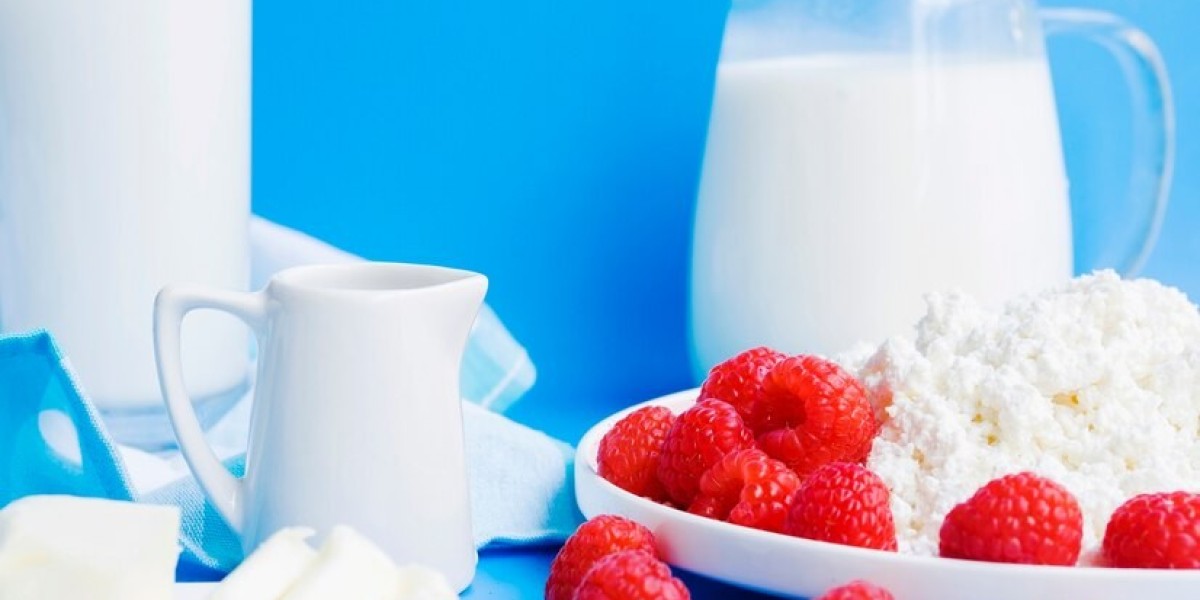As global demand for dairy products continues to rise, the dairy concentrates market has become an essential segment of the industry. Dairy concentrates, which are created by removing water from milk to concentrate its nutrients, offer a variety of benefits, including longer shelf life, easier transportation, and enhanced nutritional value. However, as the market grows, the focus on sustainability in dairy concentrate production and supply chains has become increasingly important. The industry faces the challenge of balancing the demand for convenience and nutrition with the need to reduce its environmental footprint.
Sustainable Production Methods
The production of dairy concentrates involves processes such as evaporation, membrane filtration, and spray drying, which require significant energy and water resources. As the dairy concentrates market grows, manufacturers are adopting more sustainable production methods to minimize environmental impact. One of the most significant advancements in this area is the development of energy-efficient processes. For example, using advanced heat recovery systems during evaporation and drying reduces energy consumption. Similarly, manufacturers are implementing water recycling technologies to ensure that water used in production processes is reused and not wasted. These efforts not only lower the environmental footprint but also reduce operational costs for producers.
Reducing Greenhouse Gas Emissions
Greenhouse gas emissions are a major concern in the dairy industry, especially due to methane emissions from dairy cattle. While dairy concentrates themselves are more energy-efficient in terms of transportation, the sustainability of dairy farming practices must also be addressed. The dairy concentrates market is increasingly aligned with initiatives that aim to reduce emissions at the farm level. Many producers are partnering with sustainable dairy farms that use practices such as improved feed management, methane capture systems, and rotational grazing to reduce their carbon footprint.
Moreover, innovations in feed ingredients and supplements are helping to reduce methane emissions from cows. This aligns with the growing global trend toward more sustainable and eco-friendly food production, as reducing greenhouse gases is crucial for combating climate change. As consumer preferences shift toward sustainability, dairy concentrate producers are working to ensure that their supply chains are environmentally responsible from farm to finished product.
Sustainable Packaging Solutions
Packaging plays a crucial role in the sustainability of dairy concentrate products. Traditionally, dairy concentrates are packaged in plastic containers, which can contribute to plastic waste. However, the industry is seeing a shift toward more sustainable packaging options. Companies are increasingly exploring biodegradable, recyclable, or compostable packaging materials to reduce the environmental impact of packaging waste. Additionally, the development of lightweight packaging that uses fewer resources while maintaining product quality is gaining traction.
Some manufacturers are also investing in smart packaging technologies that help to extend shelf life without the need for excess preservatives or harmful chemicals. These innovations are beneficial for both consumers and the environment, as they contribute to reducing waste and ensuring that dairy concentrates remain fresh for longer periods.
Consumer Demand for Sustainable Products
As consumers become more environmentally conscious, there is an increasing demand for sustainable products, including dairy concentrates. Studies have shown that consumers are willing to pay a premium for products that are sustainably sourced and produced. This has led many dairy concentrate producers to emphasize their commitment to environmental responsibility in their marketing strategies.
In addition to sustainability in production and packaging, there is a growing interest in plant-based dairy alternatives. These alternatives, such as plant-based concentrates made from almonds, soy, or oats, are gaining popularity among environmentally conscious consumers who are seeking dairy-free options. Dairy concentrate producers are responding to this trend by incorporating plant-based products into their portfolios, thereby catering to both environmental and dietary preferences.
Conclusion
The dairy concentrates market is poised for continued growth, but its future success will depend on its ability to embrace sustainability. By adopting energy-efficient production methods, reducing greenhouse gas emissions, investing in sustainable packaging solutions, and responding to consumer demand for environmentally friendly products, the industry can mitigate its environmental impact while continuing to meet global demand. As sustainability becomes an essential criterion for consumers and businesses alike, the dairy concentrates market will play a crucial role in shaping the future of the dairy industry.



